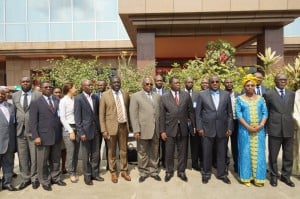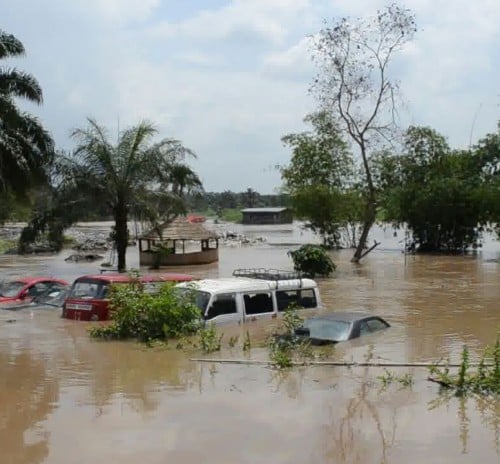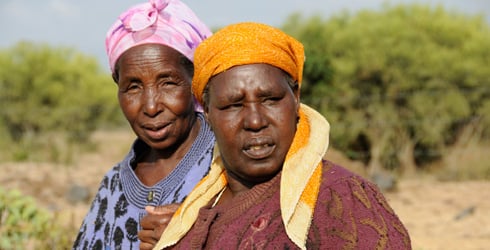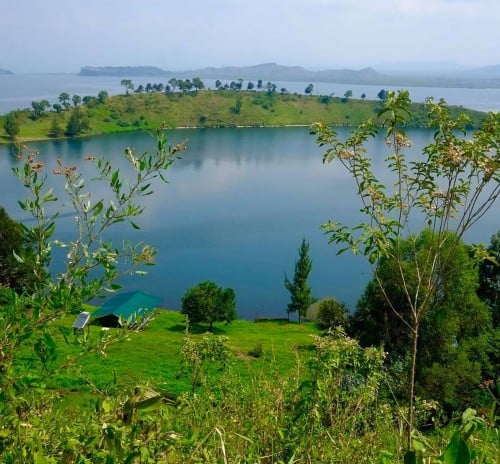
Participants at the extraordinary meeting of the Economic Community of Central African States in Libreville, Gabon. Photo by ECCAS
Environment Ministers of the Economic Community of Central African States (ECCAS) have called for a legally binding and universal agreement on climate change in Paris this year. Meeting in Libreville, Gabon on August 27, 2015, the Ministers also discussed and adopted a consensus position on issues ranging from technology transfer, climate finance, mitigation, adaptation, loss and damage to REDD+. ECASS is a regional bloc meant to promote socioeconomic development in Central African states.
Legally Binding Agreement
From Central Africa, the expectation is nothing other than a universal, just, equitable, and legally binding agreement in Paris. This is contained in the final declaration issued at the end of the August 27, 2015 Libreville meeting.
Technology Bank
The United Nations has called for the creation of a Technology Bank for Least Developed Countries (LDCs). This Bank to be headquartered in Istanbul, Turkey will promote scientific research and innovation and facilitate the diffusion and transfer of technologies to the least developed countries, on voluntary and mutually agreed terms and conditions, and with necessary protections for intellectual property. Congo Basin countries reaffirmed their support to the initiative at the Libreville meeting.
One of the main outcome of the 2010 UN Climate Change talks held in Cancun, Mexico was the decision to create a Green Climate Fund (GCF). This fund has had numerous challenges going operational in part because many developed country parties have not honored their pledges. In Libreville, the Central African Ministers of Environment called on developed countries to honor their commitment so that the fund can go fully operational. In addition, they also called for the effective implementation of a regional Green Fund to be hosted in the Development Bank of Central African States (DBEAC).
Adaptation and Mitigation are Equally Important
The mitigation facet of the climate change negotiation has tended to get more financial support overall. Governments meeting in Libreville argued that mitigation and adaptation to climate change should get equal attention as well as financial support. With respect to regional adaptation measures, Congo Basin countries reiterated their drive towards green economy and aligning national adaptation measures to the overall development process.
This was perhaps one of the most contentious issue at the Lima COP in Peru in December 2014. From Central Africa, the Ministers simply engaged to identify preventive measures and reinforce responses and preparation to natural disasters.
Finances Critical to Implement 2nd Phase of REDD+
Almost all countries of the Congo Basin are engaged in the implementation of programs related to the mechanism known as Reducing Emissions through Deforestation and Land Degradation (REDD+). The Environment Ministers would like to see additional funding for the effective implementation of the second phase of REDD+.
The United Nations Climate Change talks will hold from December 1-13, 2015 in Paris. The global development community expects the talks to produce a binding agreement.
Related posts
-

RDC : Les conséquences du changement climatique se font sentir plus rudement
-

$248 USD million pledged to GEF climate fund for most vulnerable countries
-

Why Dependence On Natural Resources Is Bad For DR Congo
